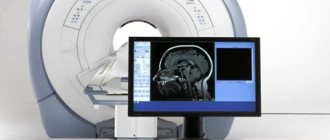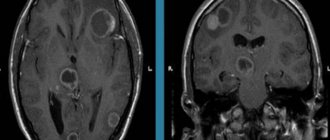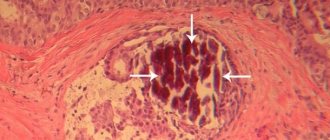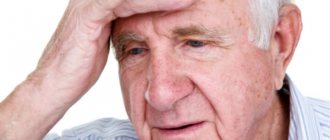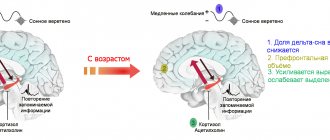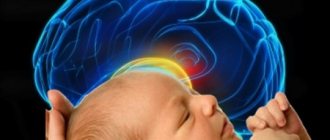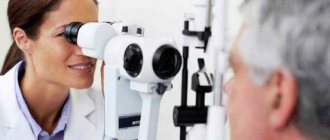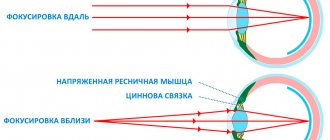Neurophysiology is a science that studies, through electrophysiological techniques, the features of the organization, functioning and interaction of the central nervous system and the brain.
This area of medicine is closely related to neurology, psychology, physiology, biology and anatomy, however, unlike these disciplines, it is primarily engaged in theoretical research.
The subjects of study of neurophysiology are visual, auditory, tactile and olfactory perception of a person, his emotional and somatic reactions, mechanisms for receiving and processing information, etc.
The origin of neurophysiology dates back to the century before last. For a long time, scientific activity consisted of conducting and describing experiments on animals. In the course of such studies, scientists, for example, revealed the similarity of many functions of the central nervous system of animals and humans.
By the end of the 19th century, a large amount of information about neurology and physiology had been accumulated; a kind of impetus was required to give an understanding of how to use this knowledge. This impulse was the discovery of the neuron, the functional and structural unit of the nervous system.
The 20th century was an era of great medical discoveries. Russian researchers and doctors made an invaluable contribution to the development of the science of neurophysiology: I.M. Sechenov, author of the work “Reflexes of the Brain”, I.P. Pavlov, V.M. Bekhterev, N.E. Vvedensky, A.F. Samoilov.
Neurophysiological research methods invented in subsequent decades made it possible to bring the diagnosis of diseases of the brain and nervous system to a new level.
1
Consultation with a neurologist
2 Electroencephalogram (Echo-EG)
3 Electroencephalogram (Echo-EG)
Causes of Memory Loss
- Certain injuries and pathologies of the brain - these include, for example, cancer, traumatic brain injury, stroke;
- Disruption of certain systems of the human body;
- Negative factors - sleep problems, stress, lifestyle changes, increased brain load, incl. for memory;
- Addictions – alcohol, nicotine, drugs, systematic use of sedatives;
- Age-related changes that reduce memory function.
What does a neurophysiologist do?
A neurophysiologist is a specialist who, being both a physician and an analyst, collects and interprets neurophysiological examination data in order to make an accurate diagnosis for the patient and recommend the optimal treatment option.
Using various instrumental methods, a neurophysiologist determines the degree and nature of damage to the patient’s nervous system, analyzing functions such as vision, hearing, touch, smell, volume and coordination of movements, electrical activity of the brain and muscle cells.
Neurophysiological studies allow for accurate diagnosis, which is very important for symptoms characteristic of various pathologies. Thus, a headache may indicate both increased intracranial pressure and the presence of vascular changes or a tumor process in the brain.
The importance of neurophysiological studies for the diagnosis of neurological and other diseases cannot be overestimated.
Diseases that cause memory problems
Memory impairment often appears as a result or symptom of various diseases. They are often caused by traumatic brain injuries. People who receive them note memory impairment, the degree of which directly depends on the severity of the injury. Traumatic brain injuries can lead to various types of amnesia - retrograde or anterograde. The patient may not remember either the moment of injury or the period preceding it. Sometimes memory loss is combined with the appearance of hallucinations and false memories.
The most common causes of memory problems include disruption of normal cerebral circulation. Atherosclerosis of blood vessels leads to a decrease in blood flow in all parts of the brain, and this often provokes an acute cerebral circulatory disorder. A stroke developing in one of the brain zones cuts off the blood flow to it. This leads to impaired brain activity and memory loss. Similar symptoms also occur if a person suffers from diabetes.
It's a different story with diseases that are transmitted genetically, including Alzheimer's disease. It cannot be cured, but competent therapy and care slow down the development of the disease, minimize the consequences and reduce the risk of complications.
Memory also becomes worse due to diseases of the thyroid gland, leading to iodine deficiency in the human body. This is accompanied by a tendency to obesity, apathy, depression, excessive irritability, and swelling of muscle tissue. You can avoid such manifestations if you choose the right diet, which includes frequent consumption of iodine-containing foods, as well as persimmons, seafood, seaweed, hard cheese, and nuts. The diet also includes a variety of dairy products.
But forgetfulness is not always a pathology of memory, because quite often a person consciously tries to forget difficult life situations, negative events, and tragedies from memory. In this way, the body protects its psyche and reason. If a person throws out the negative things that happened to him from his memory, then this phenomenon is called repression; he believes that certain events did not happen - denial, and if he chooses another object to displace negative emotions - replacement. Suppressed and forgotten negative emotions that have not found a way out often turn into prolonged depression and neuroses.
Atherosclerosis
With atherosclerosis, the vessels of the whole body suffer, most of all the vessels of the legs, heart, kidneys, and brain. Atherosclerosis is a chronic disease in which plaques of fat and cholesterol are deposited on the inner walls of blood vessels. At the same time, the walls of blood vessels lose their elasticity and become denser. As a result, the lumen through which blood flows narrows and blood flow becomes difficult. The first symptoms of the disease are forgetfulness, memory lapses, then the person’s mood often changes, depression may set in, sleep is disturbed, coordination of movements becomes worse, concentration and attention weaken, headaches often occur and mental abilities deteriorate. The task of the angiologist in this case is to take control of the process as soon as possible and relieve unpleasant symptoms.
Symptoms indicating memory impairment
Memory bells that should alert you:
- forgetfulness, manifested in everyday matters;
- difficulty focusing on a specific object;
- problems with learning and remembering information, with its reproduction;
- disruption of the thought process, loss of logical connections, loss of mental acuity;
- confusion and uncertainty;
- autism, social maladjustment;
- foggy consciousness.
Often, memory problems begin against the background of deteriorating general health. However, they can be combined:
- with headaches;
- with pressure surges;
- with hand tremors;
- with muscle spasms;
- with dizziness;
- with a decrease in visual acuity.
If, in the presence of 2-3 of the above problems, memory has decreased, you should urgently seek medical help, since these symptoms signal rapidly developing brain pathologies.
What symptoms should you consult a neurologist for?
It is important to know that disturbances in the functioning of the central nervous system occur slowly and imperceptibly. For this reason, many people are not even aware of the serious danger of developing a particular disease, for example paralysis, psychosis or deterioration of intelligence. In older people, the risk of developing various diseases associated with the nervous system increases significantly.
If you notice one of the following symptoms, immediately contact a neurologist:
To avoid various types of diseases of the nervous system, you need to lead a healthy lifestyle and follow basic rules:
How a neurologist treats memory
Before starting treatment, it is necessary to understand what disease caused the problem. Medicines should be used only those prescribed by your attending physician; self-medication is unacceptable. It is optimal to undergo a complete diagnosis of brain activity, vascular health, and electroneuromyography.
It should be remembered that rapid memory deterioration in itself is not a disease; this symptom only warns of the emergence of a more serious disease that needs to be diagnosed and therapeutic or radical treatment begun. This will help restore the previous quality of life, prevent the patient from separating from society and deteriorating adaptive functions. When memory impairment is detected, nootropic drugs are usually prescribed.
Diagnostics
At the beginning of development, atherosclerosis does not manifest itself in any way. Later, as the disease progresses, several visible manifestations of atherosclerosis appear, which can be identified during a routine examination by a neurologist. This is weight loss, swelling, fatty tissue, and trophic disorders. The doctor will listen to the heart, measure blood pressure, and prescribe clinical tests. The following diagnostic measures are used:
- Ultrasound Dopplerography. Allows you to identify diseases at an early stage, assess the size of plaques and blood flow.
- Coronary angiography is used to assess the condition of the heart vessels.
How to improve memory. Recommendations from the Neuroscience Center
If you observe alarming symptoms in yourself or in people close to you, indicating memory problems similar to those indicated above, then you need to go to an appointment with a neurologist, neuropsychologist or therapist and undergo a series of special diagnostic tests. If you want to immediately start fighting an undesirable phenomenon before receiving the doctors’ verdict, then take action - start training your memory.
Here are some exercises to improve memory:
- If possible, perform your usual tasks with your eyes closed, from memory;
- If you are a left-handed person, do everyday tasks with your right hand, if you are right-handed, then with your left. Try this rule, for example, writing, ironing clothes, drawing, etc. – You will soon feel a positive result;
- learn Braille, which is used by blind people when reading, or learn sign language - this is useful for memory and can be useful in life;
- type texts on the keyboard with both hands, using all fingers;
- do some handicrafts - start embroidering or knitting;
- learn foreign languages and speak them more;
- try to distinguish the denomination of coins blindly, feeling them with your hands.
In addition, expand your range of interests, read more, visit places and institutions you have not been to before, go to plays and performances, walk in parks, meet and communicate with people, make new friends.
Perform the recommended exercises, follow the listed rules, take care of your health, and your memory will not fail you until old age!
Thrombophlebitis
This is inflammation that occurs due to varicose veins. If left untreated, the inflammation will spread to the deep veins, and as a result, the risk of blood clots moving through the bloodstream increases, causing a pulmonary embolism - a fatal disease. Superficial thrombophlebitis is first felt as a worsening of varicose veins, to which a person is already accustomed, so many do not pay attention to the alarming symptoms. However, you need to urgently consult an angiologist if you:
- it hurts where varicose veins are present;
- the pattern of the saphenous veins becomes clear, it hurts to touch it;
- seals appear around the vein, they are painful and noticeable;
- body temperature rises sharply to 39℃, you feel feverish and shivering;
- near the veins it swells sharply, turns red, and swells.
If necessary (depending on the stage of the disease), the patient is referred to an angiologist surgeon for further treatment.
Where can you improve your memory in St. Petersburg
Where should you go if it becomes clear that memory impairment is affecting your quality of life and you urgently need to take action? Why did my memory deteriorate? A specialist neurologist at our Center for Neurology, Professor Zhulev, can answer these questions.
Make an appointment with a doctor using the phone number listed on the website. If you notice that your ability to remember dates, faces and other data has sharply deteriorated, then you need to undergo an examination and identify the reasons. Don't let your health take its course. If memory has sharply deteriorated, then this is a signal from the body about problems that have arisen, and the sooner the doctor diagnoses them, the better.
We are located in the Central district of St. Petersburg, the work schedule and map can be found in the Contacts section.
Aneurysm
With an aneurysm, the wall of an artery of the heart (in rare cases, a vein) bulges because it has become too thin and stretched. Because of this, an aneurysmal sac appears, which compresses nearby tissues. A ruptured aneurysm causes hemorrhage, which often leads to death. At the first symptoms, it is important to consult an angiologist as soon as possible, who will prescribe treatment.
Important! When an aneurysm ruptures, the patient feels pain and his blood pressure rapidly drops. In this case, the person needs urgent medical attention.
Aneurysm can be congenital or acquired. If it is present in a child, then from the first days of his life the disease may not be noticed, because the child grows and develops normally until a rupture occurs. Acquired aneurysm is a consequence of atherosclerosis, hypertension, late stage of syphilis; the risk of the disease increases when the vessel is injured and when infected blood clots form.
Emboli
With this disease, the vessel is blocked by an embolus, which may consist of fat, a blood clot, or an accumulation of air. The causes can be any foreign masses that enter the bloodstream, for example, particles of adipose tissue, detached blood clots, amniotic fluid, parasites, protozoa, and fragments from injury.
Symptoms vary depending on the type of embolism:
- Fatty – disorientation, increased excitability, delirium, apathy, respiratory dysfunction, acute respiratory failure;
- Air – focal neurological disorders;
- Bacterial – sepsis;
- Pulmonary embolism – pain in the heart area, shortness of breath, fainting, lack of pulse. This is a potentially fatal condition.
This disease is treated by an angiologist surgeon, in some cases simply by an angiologist, but rarely.
Obliterating endarteritis
Obliterating endarteritis is a chronic inflammation of peripheral vessels, due to which their lumen gradually narrows, and blood flows worse to the legs. As a result, ischemia appears in the legs, and this is a direct path to gangrene. The prognosis depends on the stage of the disease at which the patient came to the doctor, concomitant diseases and a number of other factors are important. In the worst case scenario, the leg is amputated.
This disease affects men more often, 10 times more often women, the vulnerable age is 20-40 years. Usually it all starts with a spasm of the peripheral arteries. In the first stages, blood flows poorly to the limbs only during physical activity, and over time, the deficiency worsens. In the last phase, the vessel is completely closed, necrosis begins in the legs and gangrene develops. Moreover, other vessels may also be involved in the process; in this case, they speak of a generalized form of obliterating endarteritis.
Symptoms depend on the stage, and in total the disease has 4 stages of development:
- I – after a walk of 1 km, pain appears;
- IIa – pain appears when walking 200 meters or more;
- IIb – pain occurs when walking distances of less than 200 meters;
- III – pain appears at rest and when walking 25 meters;
- IV – ulcers and foci of necrosis appear.
The task of the angiologist is to prevent the disease from progressing to later stages. If this has already happened, then an angiologist surgeon treats this disease.
How is treatment done by an angiologist?
This doctor deals with conservative treatment and diagnosis of vascular diseases.
How is the examination carried out and what tests are prescribed?
During the examination and interview of the patient, a medical history is compiled, on the basis of which the doctor can already guess what kind of disease the patient has. The doctor asks questions about complaints, the time of their appearance, their nature, and provoking factors. For example, if there is pain, when it intensifies, does it go away on its own or do you need to take medicine? Many vascular diseases are hereditary, so you need to remember whether relatives had similar conditions.
During the examination, the doctor evaluates the patient’s skin, palpates sore spots, and examines the mucous membranes.
Next, tests are prescribed to accurately establish the diagnosis, confirm or refute the doctor’s first assumption. The list of tests depends on the problem, but there are those that are prescribed for almost everyone. This is a clinical blood test, a biochemical blood test, a coagulogram (clotting time test), a general urine test, and an infectious minimum.
A vascular surgeon usually prescribes ultrasound duplex scanning of veins, angiography, plethysmography, venography, and vascular CT.
Treatment methods
The angiologist provides non-surgical treatment and, if necessary, gives a referral to a vascular surgeon. The doctor prescribes various medications, as well as:
- exercise therapy;
- phlebectomy;
- cold therapy;
- compression treatment, which has proven itself to be effective for lymphostasis and varicose veins;
- barotherapy;
- darsonvalization;
- magnetic therapy;
- thermal laser, which eliminates blood reflux;
- special diet.
The patient must change his lifestyle, eliminate bad habits, become more active and eat better, his body must be in constant tone.
